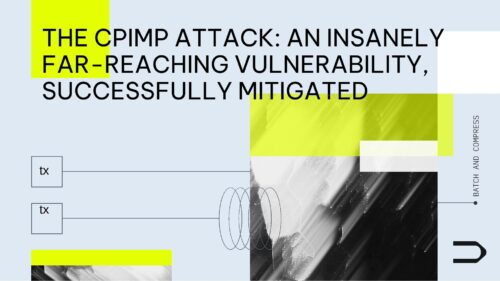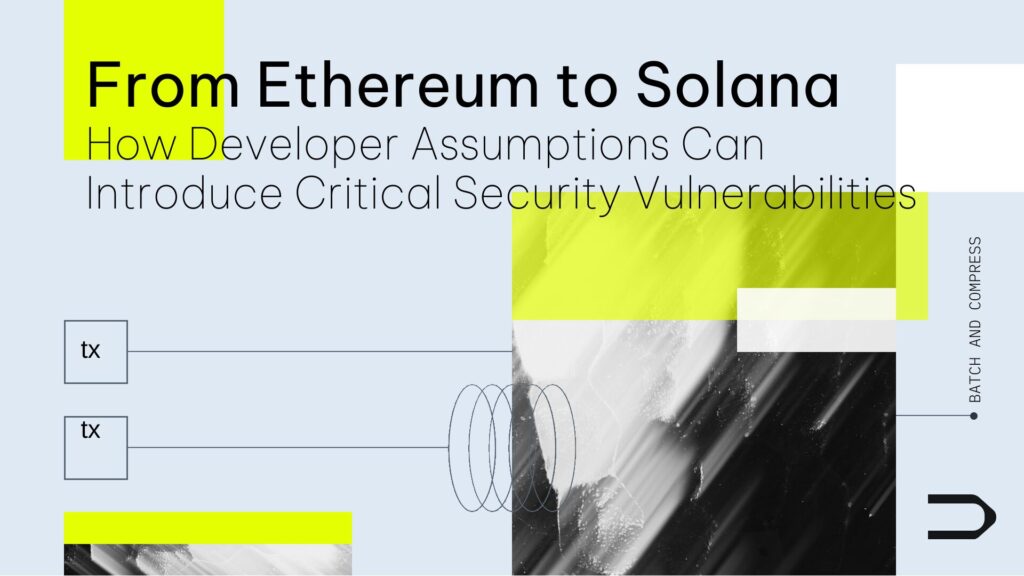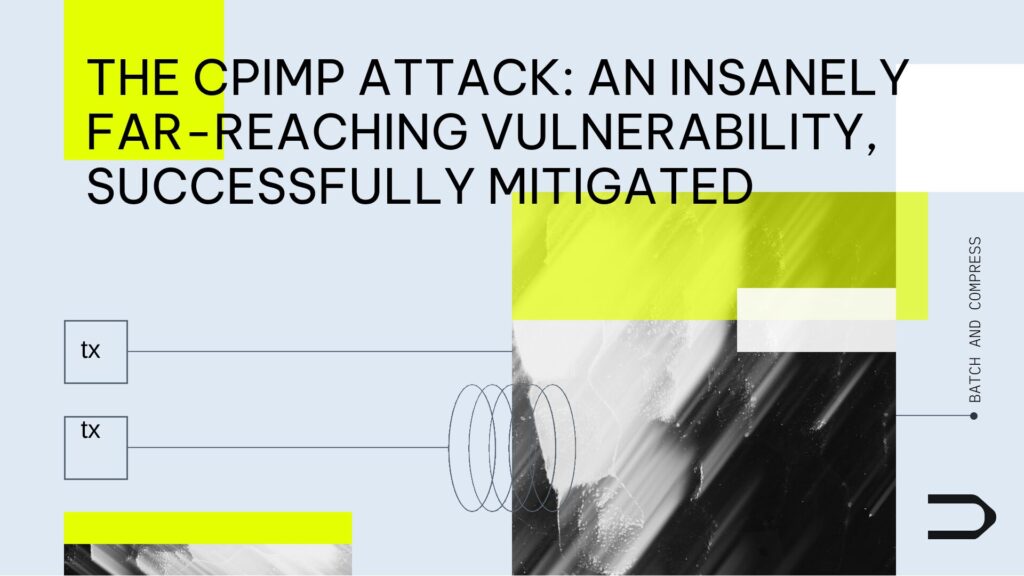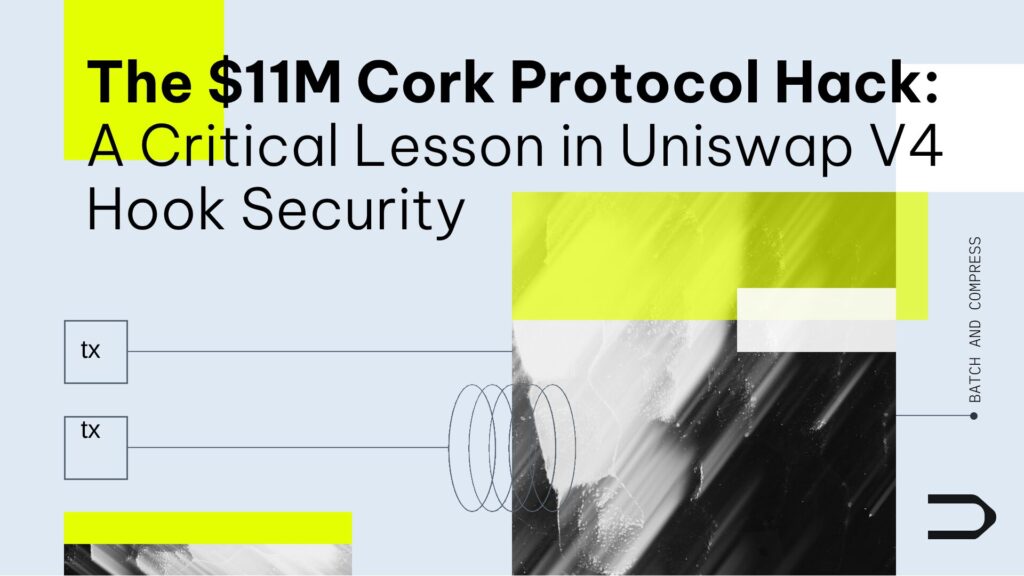The Critical Thirdweb Vulnerability
Summary: The root cause of the thirdweb critical vulnerability is that independent libraries implementing ERC2771 & Multicall, such as OpenZeppelin Libraries, interact badly, when combined. This allows attackers to spoof the _msgSender() with all sorts of access control implications including loss of funds.
The issue is complex, but can be explained using a simple analogy. Imagine a bank that will let one of the bank officials carry out a transaction on your behalf, as long as the instruction is written on a piece of paper with your verified signature. This is a very common scenario, for instance with some preferred bank clients. So, you go to the bank official and hand him a signed piece of paper. Your instructions are “take this sealed box to the cashier, open it, and give him what’s inside”. The bank official happily executes your signed instructions, after checking your id against your signature. The sealed box contains another piece of paper reading …”do a withdrawal on behalf of Elon Musk”, signed with a fake signature. The cashier takes this piece of paper from the bank official, thinking that the signature was checked, when, really, the only signature that was checked was on the instructions to deliver and open the box. That’s it! Now let’s look into the technical mechanics for how this vulnerability works, and how to protect your project from this issue.
The Critical Thirdweb Vulnerability | Background
First, we need to cover some preliminaries. In particular we need to first understand the implementation of the ERC2771 standard and the OpenZeppelin Multicall library. ERC2771 gives the ability to have a “virtual” msg.sender, i.e., caller of a public function of a smart contract.
ERC2771 defines a contract-level protocol for Recipient contracts to accept meta-transactions through trusted Forwarder contracts. No protocol changes are made. Recipient contracts are sent the effective msg.sender (referred to as _msgSender()) and msg.data (referred to as _msgData()) by appending additional calldata.
ETHEREUM ERC-2771
Therefore, this virtual msg.sender, called _msgSender() is set by a trusted external party, the forwarder. And how does the forwarder tell the contract what is the virtual msg.sender? It appends an extra parameter to all calls. This means that all functions of a contract that supports such virtual msg.senders need to take in an extra parameter which they interpret as the msg.sender. The other side of the vulnerability is Multicall. It is a way to have a single call that becomes many calls (to the same contract) in sequence. How does this happen? By making all the info of the “many calls” be parameters of the “outer” single call.
The Critical Thirdweb Vulnerability | Root cause?
The problem with these two libraries is that the forwarders (in ERC2771) were not designed to work with multicall. They add a single _msgSender() parameter to the outer call of a multicall. But remember: all functions now expect this parameter! Where can they get it from? The parameters of the outer multicall.
So, if an attacker uses multicall to call, say, 3 functions in sequence, the attacker can define all the parameters to these function calls, including the _msgSender()! This means that the attacker can make a call appear to be coming from anyone!****
The Critical Thirdweb Vulnerability | Evaluating the impact
We have tried to reach out to most large projects that might have been affected (in collaboration with thirdweb and OpenZeppelin) over the last few days. However, if you are worried about this issue affecting your contract, we have flagged any contract affected on Watchdog and made this information available to the public. However, the extent to which your contract is affected depends on actual implementation of the contract. First, evaluate functions with access to _msgSender() (transitively). Do these functions contract check access control mechanisms using _msgSender()? For example, can someone withdraw or burn coins for the _msgSender()? In that case, the issue affects your contract, critically. In many of these contracts there may be onlyOwner or onlyRole modifiers that make use of _msgSender(). In addition, look for common transfer functions such as safeTransferFrom() or transfer(). The effect is also modulated by the value of the assets held by the contract, or if this contract represents an asset. Make sure to find out if your contract is a token in a Uniswap-like liquidity pool. It is possible that all the liquidity in this pool could be stolen due to this issue.
The Critical Thirdweb Vulnerability | Mitigation
The rest of the article outlines mitigation. Thirdweb has developed and deployed a mitigation tool that can possibly assist you. A large number of affected contracts were deployed by their product. However, oftentimes you’d need to take additional actions. Should you require assistance the team at Dedaub can at least point you to the right information. You may contact us here. In the rest of the article we list some some mitigation options we’ve observed over the last few days to be successful. Legal disclaimer: This should not be construed to be professional advice by our team.
PREFERRED MITIGATION: DISABLE TRUSTED FORWARDER
Some ERC2771 library implementations allow resetting a trusted forwarder. Doing so will prevent any gasless transaction from being executed through the forwarder, solving the issue (albeit at the cost of missing functionality). Unfortunately there are many instances where resetting the trusted forwarder is not possible, so the rest of the mitigation steps apply. Otherwise, your smart contract is probably safe from this issue.
ADVANCED MITIGATION METHODS
These mitigation methods may take time and expertise to successfully execute. If time is critical, you can consider decreasing the blast radius in the next section in case an attacker hacks the contract while you are in the process of planning a mitigation.
If your contract is Upgradeable, prepare an upgrade. Removing either multicall (and all functionality that delegatecalls to the same smart contract) prevents the attack. In addition, removing ERC-2771 functionality also prevents the attack. Other ways to prevent this attack involve adding a module that allows doctoring of the contract’s storage and removing the trusted forwarders in this way. This latter is difficult to execute correctly.
DECREASING THE BLAST RADIUS
Some steps can be taken in cases you do not manage to mitigate the issue in a timely fashion to limit the amount of stolen assets from your contract. This can be done in several ways:
Ask your users to remove approvals from your contract. You can additionally check which users have approved your smart contract to transfer funds by checking on app.dedaub.com, navigating to your smart contract, navigating to balances and then allowers. Note that publicly announcing removal of approvals can work both in favor and against you since malicious hackers could be tipped off.
Pausing your contract may help users from continuing to use it, but, depending on the implementation it might not prevent the attack.
Remove liquidity from Uniswap-like pools in case the token is held by a pool, otherwise the liquidity in this pool may be drained in some cases.
Conclusion
The thirdweb vulnerability is an unfortunate issue that came about due to the composability of libraries in a single smart contract, through inheritance mechanisms. Unfortunately, although libraries are supposed to be abstractions, when it comes to security abstractions can easily be broken and implementations can affect each other in unforseen ways. This was even the case despite the overwhelming majority of affected libraries were developed by the same organization. In their defence however, it is very hard to make libraries interoperable, and, furthermore even harder to make them upgradable. Our audit team at Dedaub regularly finds issues in smart contracts that employ “safe” 3rd party libraries. Our decompiler and contract analysis tools really help in such cases as they work on the actual deployed code of a smart contract. We regularly find issues related to upgradability, but other issues may be lurking.
We would like to commend the work of countless other security engineers who have helped reach out to affected projects!





